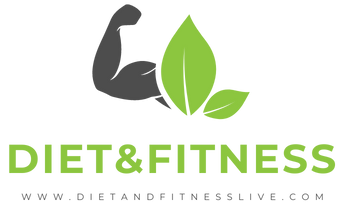
- Fasting Diet: A Comprehensive Guide to Health and Wellness
- What is a Fasting Diet?
- Benefits of Fasting Diet
- Risks of Fasting Diet
- How to Follow a Fasting Diet
- Foods to Eat and Avoid
- – Lean protein sources such as chicken, fish, and tofu
- – Whole grains such as brown rice and quinoa
- – Vegetables and fruits
- – Nuts and seeds
- – Healthy fats such as olive oil and avocado
- Conclusion
Fasting Diet: A Comprehensive Guide to Health and Wellness
Fasting diets have been gaining popularity in recent years, with many people opting for this method to lose weight and improve their overall health. The concept of fasting is not new, and it has been practiced for centuries in various cultures and religions. However, the modern-day fasting diet is not just about abstaining from food for a certain period. It is a well-planned approach that involves specific types of food, timing, and duration.
In this article, we will discuss the fasting diet, its benefits, risks, and how to follow it safely. We will also provide you with some tips to make the most out of your fasting diet.
What is a Fasting Diet?
A fasting diet is a type of diet that involves periods of fasting, followed by periods of eating. The idea behind this diet is to give your body a break from constant digestion and allow it to focus on other functions such as repair, detoxification, and rejuvenation. There are different types of fasting diets, such as intermittent fasting, alternate-day fasting, and extended fasting.
Intermittent fasting involves restricting your eating window to a certain number of hours per day, such as 8 hours, and fasting for the remaining hours. Alternate-day fasting involves alternating between a day of regular eating and a day of fasting. Extended fasting involves fasting for more extended periods, such as 24 hours or more.
Benefits of Fasting Diet
The fasting diet has been associated with numerous health benefits, including weight loss, improved insulin sensitivity, reduced inflammation, and improved brain function. Fasting has also been shown to increase autophagy, which is the process by which the body removes damaged cells and replaces them with new ones.
Fasting has also been linked to a reduced risk of chronic diseases such as diabetes, heart disease, and cancer. Studies have shown that fasting can lower blood sugar levels, blood pressure, and cholesterol levels, all of which are risk factors for these diseases.
Risks of Fasting Diet
While the fasting diet has many benefits, it is not suitable for everyone. People with certain medical conditions, such as diabetes, should consult their doctor before starting a fasting diet. Fasting can also lead to dehydration, fatigue, and headaches, especially during the initial stages.
Prolonged fasting can also lead to nutrient deficiencies, as the body is not getting enough essential nutrients from food. It is essential to ensure that you are getting enough nutrients during your eating window to avoid any deficiencies.
How to Follow a Fasting Diet
If you are interested in trying a fasting diet, it is essential to plan it carefully to ensure that you are getting enough nutrients and not putting your health at risk. Here are some tips to help you get started:
- Start slowly: If you are new to fasting, start with a shorter fasting window and gradually increase it over time.
- Stay hydrated: Drink plenty of water during your fasting window to avoid dehydration.
- Plan your meals: Plan your meals carefully to ensure that you are getting enough nutrients during your eating window.
- Listen to your body: If you feel unwell or experience any adverse effects, stop fasting and consult your doctor.
Foods to Eat and Avoid
During your eating window, it is essential to focus on nutrient-dense foods that will provide your body with the essential nutrients it needs. Foods that are high in protein, fiber, and healthy fats are ideal for the fasting diet. Some examples of foods to eat include:
– Lean protein sources such as chicken, fish, and tofu
– Whole grains such as brown rice and quinoa
– Vegetables and fruits
– Nuts and seeds
– Healthy fats such as olive oil and avocado
It is also essential to avoid processed foods, sugary drinks, and foods high in saturated and trans fats.
Conclusion
The fasting diet is a popular and effective way to improve your health and lose weight. However, it is essential to plan it carefully and ensure that you are getting enough nutrients to avoid any adverse effects. If you are interested in trying a fasting diet, consult your doctor and start slowly to avoid any complications. Remember to listen to your body and stop fasting if you experience any adverse effects.






